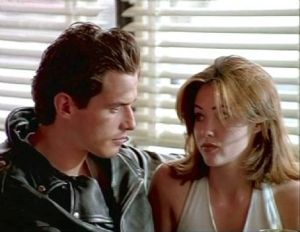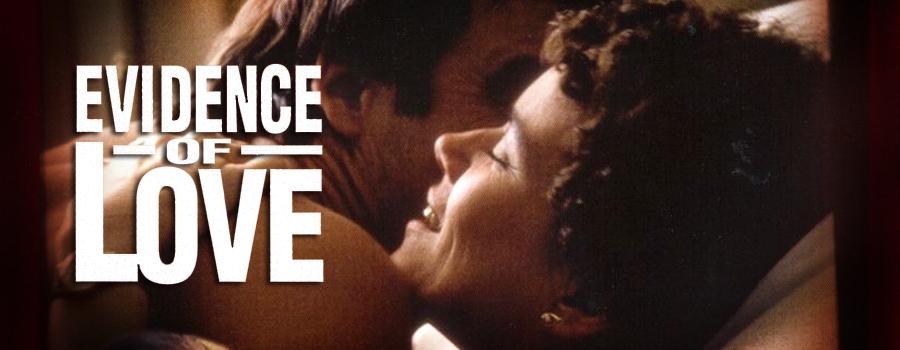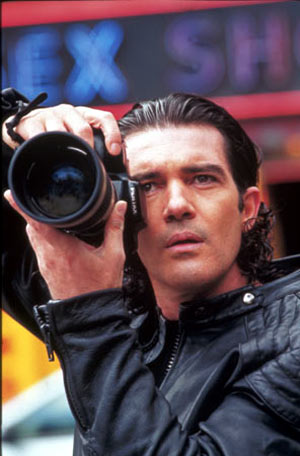Wet Hot American Summer (2001)
 Tuesday, November 13, 2012 at 11:26PM
Tuesday, November 13, 2012 at 11:26PM 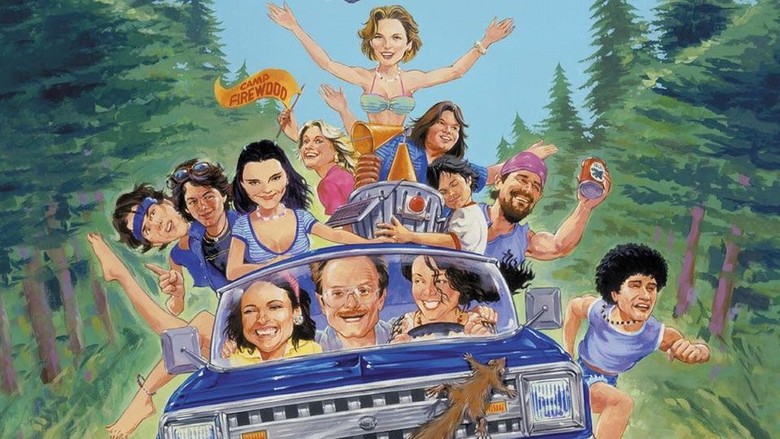
Directed by: David Wain
Written by: Michael Showalter and David Wain
Players: David Hyde Pierce, Janeane Garafolo, Michael Showalter, Marguerite Moreau
Setup: Camp counselors run amok with love and freedom in the air on the last day of the Summer season... with unexpected and utterly ridiculous hilarity.
Review: This film has been on my radar since my Freshman year of College, where it was sitting mysteriously on my roommate Bryce's shelf. Still, I just couldn't ever bring myself to view it. One look at the cover brought me to a point of slight curiosity, but not enough to pursue completely. One lazy Sunday changed all that, with excitement brewing due to the description of "spoof" for the film which I had not previously considered at all. Needless to say, any reservations I had were unfounded; the flick is brilliantly wacky and irreverent, resulting in giggly hysterics even after the film is over.
With a cast of players you've seen all over (including but not limited to Michael Ian Black, Paul Rudd, Christopher Meloni, Joe Lo Truglio, Amy Poehler, Bradley Cooper, Elizabeth Banks, and Molly Shannon), the film truly delivers an ensemble experience. Plot points range from making out to finding love, making out and getting laid, and making out and saving the world (did I mention making out?). Really, there is more to the film than this, and it helps to make it all the more enjoyable. Characters end up in ridiculous situations, leading them to perform ludicrous problem solving that leads to (sometimes dark) comic situations.
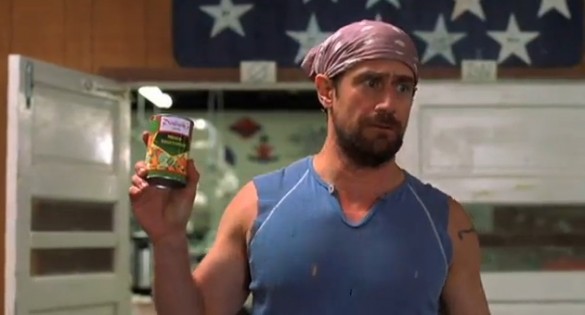 Archer in a can!
Archer in a can!
Where this film succeeds on all cylinders is its unique straddling of the real/unreal boundary, giving us enough of the former to care about the characters even when the film becomes difficult to believe overall. We can accept these people as generally likable (or wonderfully dislikable in regards to Paul Rudd's character), leading us to surprisingly effective hijinks. You can trust me when I say the overall atmosphere is one of enjoyable excitement and hilarity due to the sheer ridiculousness that pervades the film. Unlike its recent successors (Epic Movie, Disaster Movie, etc.) this spoof flick surprises even the most experienced watcher of comedic discourse. In fact there are so many fantastic moments that during this article's creation, it took all of my will and strength to supress my laughter at scenes I had all but forgotten about beforehand (due to there being so many!). So go ahead, check it now, and prepare for the onslought of funny and 80s culture combined.

Tidbit: The great H. Jon Benjamin (the voice of Archer in the eponymous series) tried out for an on screen role but failed. Regardless, he got the arguably enviable role of a talking tin can...seriously.
Drink of Choice: On a hot, sticky, sweaty, hot, sweaty, clammy day (NOT adult oriented as the movie title implies), all you need is Corona with lime (easier to avoid spillage, and to make, while laughing hysterically).
Directions: Add a damn lime to a Corona bottle. Drink. Repeat.
Might be my first non-mixed drink I've recommended here... had to happen sometime.
 Comedy,
Comedy,  Review,
Review,  Smashed,
Smashed,  Streaming Roulette in
Streaming Roulette in  Streaming Roulette
Streaming Roulette 


